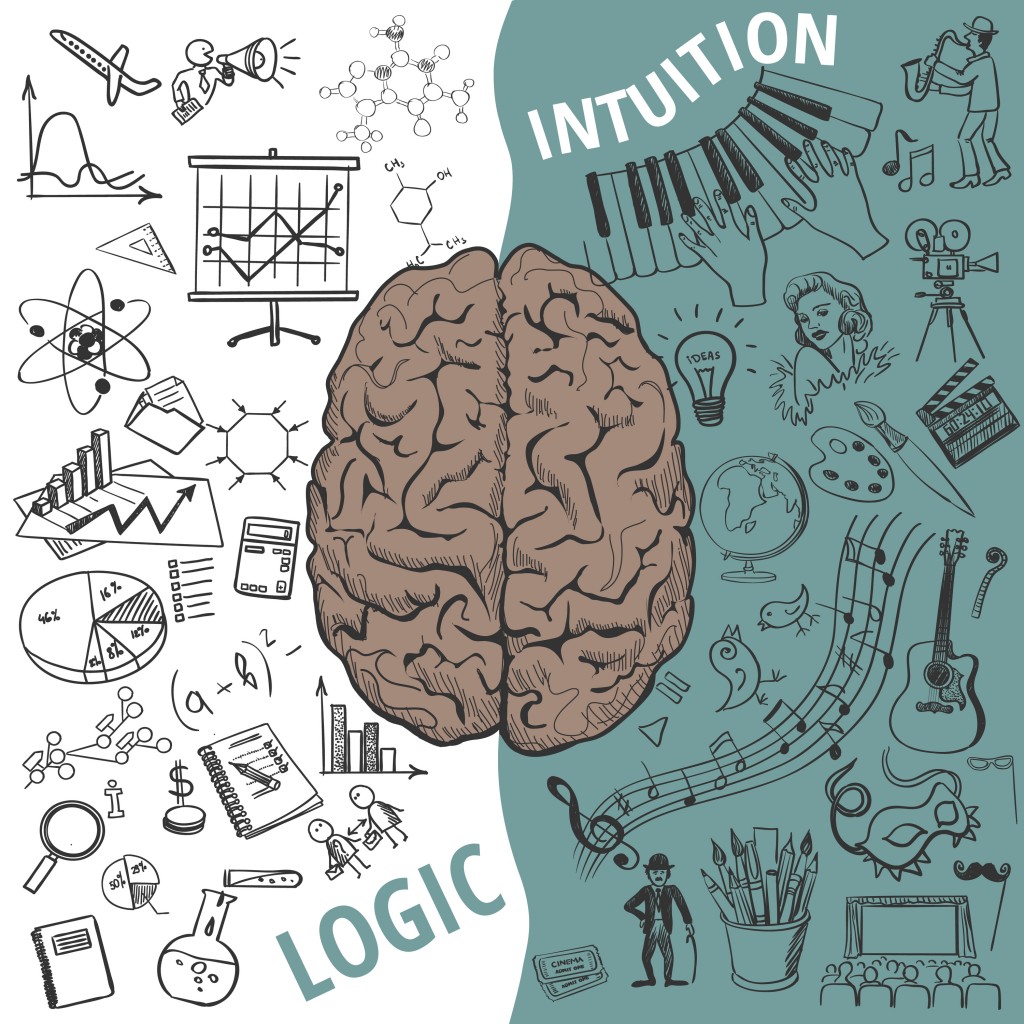- Make It Yourself Lavender Heart-Shaped Bath Bombs!
- 20 Things You Never Knew About “Down There”
- 12 Best Foods For Those Suffering From Arthritis Pain
- 12 Personal Hygiene Mistakes Almost Everyone Makes (Mom Never Told You About #4!)
- 15 Medicinal Plants And Herbs From The Cherokee People
- 12 Mind-Blowing Benefits Of Drinking Coconut Water During Pregnancy
- 12 Outstanding Winter Foods That Won’t Fatten You Up Like A Christmas Turkey
14 Of The Biggest Lies And Myths Told About Fasting (Even We Didn’t Know #9!)

Photo credit: bigstock.com
Over the past few years, intermittent fasting has become super popular.
If you haven’t heard about it, intermittent fasting is a type of eating pattern where you have certain cycles or time periods where you eat and other time periods of fasting.
There are numerous fasting plans, including the 5/2 diet, where you eat as you normally would 5 days of the week and eat nothing or a minimal amount of food (generally less than 600 calories) for the other 2 days. There is also the 16-hour fast, where people eat all their meals in an 8-hour period and fast during the other 16 hours of the day.
Like most diets or eating plans, there are tons of myths, lies, and plain old misinformation about fasting that prevents many people from giving it a try.
Whether you are an old pro at fasting or you are just checking it out, keep reading. We are going to look at the top 14 myths that surround fasting and find out the truth.
1. You Should Eat Breakfast Like a King
Have you ever heard this saying? Eat breakfast like a king, lunch like a queen, and dinner like a pauper. This basic train of thought is connected to the belief that you should limit food, especially carbs, in the evening so it won’t be stored as fat. During Ramadan fasting, people eat high levels of carbs and sweets late into the night, yet it has no effect on their body weight or their body fat percentage. If studies during Ramadan don’t convince you, consider that other studies have looked at people who eat most of their calories early in the day, and others who consume the majority of their calories later in the afternoon, and found that the group which consumed most of their calories in the evenings gained more muscle mass than the group who ate big breakfasts.
Continue to Page 2

Photo credit: bigstock.com
2. Skipping Breakfast Makes You Fat
Another popular saying is “Breakfast is the most important meal of the day.” There does appear to be an ongoing myth that breakfast is somehow mysteriously important. Most people believe that if you skip breakfast, you will be ravenous come mid-morning and overeat, thus prompting weight gain. The truth is that in a randomized controlled study done in 2014 on more than 283 obese subjects, which looked at those who ate breakfast and those who skipped it, there was absolutely no difference between the two groups. Of course there have been a few studies which found that people who ate breakfast lost weight compared to those who did not eat breakfast. It appears to boil down to personal preference. If you are not a fan of breakfast, feel free to skip it.
3. Fasting Stresses the Body, Increasing Cortisol Levels
Cortisol is a stress hormone that regulates the immune system and maintains blood pressure. It also is important for breaking down glucose and protein. Although this hormone is demonized by many, it serves an important purpose. It’s cortisol that makes you get up out of bed and get moving. Those who have low or irregular levels of cortisol often have depression. Cortisol is at elevated levels when we exercise, which helps to mobilize fats in the body. Short term fasting has no effect on your cortisol levels. This has been widely studied. In one important study, the exact opposite was found to be true. The group that was fasting had significant decreases in their cortisol levels. So rest assured, fasting will not increase your cortisol levels and might even decrease them.
4. Eating Frequently Increases the Metabolism
Many people erroneously believe that eating smaller, more frequent meals will keep their metabolic fire burning, which helps you to burn more calories overall. Although it is true that your body expends some energy in the digestion process, it isn’t that much. This is called the thermic effect. The body spends about 10 percent of all calories digesting them. The thing to pay attention to is that the body will expend that same 10 percent regardless of whether you eat all your calories in two or three meals or 6 meals. Studies have shown that eating six 500 calorie meals will have the exact same effect on the body as eating three 1000 calorie meals. So eat as often or as infrequent as you like, it won’t make any difference.
5. Eating Small Meals Helps Keep Blood Sugar Level
You have probably seen this one a hundred times. If you eat small meals, you will avoid being hungry and keep your energy levels stable throughout the day. Believe it or not, this isn’t true. The body keeps blood sugar levels very stable and well maintained for healthy people. Your blood sugar won’t plummet if you go without eating for a few hours, or even an entire day. It would take at least 3 days of not eating a thing before your body would be forced to lower blood sugar levels. Our bodies have evolved considerably as a matter of survival. Cavemen didn’t always get to eat every day, but somehow they lived just fine. Unless you are diabetic or have some other health problem, for normal, healthy people, you will not experience lethargy or brain fog if you don’t eat for several hours or even all day.
Continue to Page 3

Photo credit: bigstock.com
6. Eating Often Keeps You from Being Hungry
This seems to be a no-brainer, but studies do not actually back this up. Some studies have found that eating or snacking more frequently leads to less hunger, but other studies have found this not to be true. Still other studies have found that the more you eat, the hungrier you are! This is another point that shows that everyone is different, so do what works for you. If you find you need to snack to keep from overeating, then do so.
7. Fasting Will Make You Overeat
You might have heard people say that fasting won’t cause you to lose any weight, because you will simply overeat once you start eating again. While this is partly true, it isn’t entirely true. It is true that after fasting, most people will eat a bit more than if they had not been fasting; however, it has been found that people only eat about 500 extra calories. That might sound like a lot, but when you consider that people expend about 2400 calories while they are fasting, this means that their total calorie consumption is 1900 in the red. Intermittent fasting reduces food consumption in general while really boosting the metabolism. It also reduces insulin levels while boosting HGH (human growth hormone) as much as 5 times its normal amount. One 2014 review of studies regarding intermittent fasting over a 3- to 24-week period found that subjects had an average weight loss of between 3 and 8 percent of their body weight with a 4 to 7 percent decrease in abdominal fat.
8. Eating Many Smaller Meals Helps You Lose Weight
As we mentioned before, eating frequently does not increase your metabolism. Nor does it appear to reduce your hunger. This means, then, that it also will not have an effect on weight loss. Most studies do show that meal frequency has no effect on weight gain or weight loss. One study found that there was no difference in fat loss, weight, or hunger levels when comparing those who ate 3 larger meals and those who ate 6 smaller meals with the same caloric intake. Some people find that eating frequently stops them from craving junk food, while other people find that frequent meals make it harder to follow a diet. Scientifically, there is no evidence that eating small meals frequently will help, but it will also not harm you. Do whichever works best for you.
9. Fasting is Bad for Your Overall Health
Many people falsely believe that going without eating will cause you great bodily harm. However, science shows that this simply isn’t true. A growing number of studies have shown that intermittent fasting or intermittent calorie restriction is actually very good for the body. In studies done with animals, fasting “turns on” the genes that are related to longevity and protection from disease. It also has been shown to reduce oxidative stress and inflammation, and improve insulin sensitivity. Your mother might be concerned when you don’t eat, but tell her not to worry, that your doctor said it was all right.
Continue to Page 4

Photo credit: bigstock.com
10. The Brain Needs Glucose All the Time
Believe it or not, most people believe that if they don’t chow down on some carbs every couple of hours, the brain will cease to function! This is based on a belief, not fact, that the brain only uses glucose as fuel. Our bodies can actually produce all the glucose it needs. Your body stores glucose in the liver that it can give the brain if need be. Even during times of starvation or while on a very low carbohydrate diet, the body will begin to produce ketones from fat in the body. The short version is that the brain will run just fine on ketones or glucose made from proteins or fats. If we needed carbs constantly to feed our brains, humans would have died out millions of years ago!
11. Fasting Will Cause You to Lose Muscle
You will hear people say that if you don’t eat, your body will begin to burn muscle for fuel. This happens in general whenever people diet, but it does not happen more, or to a greater degree, to those who fast. Several studies have linked fasting to improved retention of muscle mass. One study review found that intermittent calorie restriction, such as the 5/2 diet, caused similar amounts of weight loss as a typical diet, but those who were fasting had much less reduction in their muscle mass. This is why intermittent fasting is so popular among body builders. They find that it enables them to maintain muscle mass with a low percentage of body fat.
12. Eating Frequently and Snacking Is Good for You
Although your mother may have raised you this way, the truth is that it is not natural for the body to constantly have food in the stomach. Humans have evolved and learned to go without from time to time. Fasting occasionally has many health benefits while studies show that eating often and snacking can actually increase your risk of developing disease, including excessive liver fat and an increased risk of colorectal cancer.
13. Your Body Can Only Use So Much Protein at One Time
One of the lingering myths as to why we need to eat frequently is that our bodies can only digest about 30 grams of protein at a time. This is why they feel that people should eat every 3 hours or so. Studies, meanwhile, have shown that there is no difference in muscle mass if you consume protein every 3 hours or every 30 hours. The important thing is how much protein you consume, not how many hours you spread out that consumption. If our bodies could only consume small amounts of protein at a time, again, humans would have died out millions of years ago.
14. Fasting Will Send You Into Starvation Mode
This is the biggest myth and, if you ask, most people believe this to be fact. People who believe this say that when you fast, your body believes that it is starving and it will shut down the metabolism to conserve calories and fat. While it is true that long-term weight loss will eventually reduce the number of calories you burn, and this can add up to hundreds of fewer calories burned per day. However, what they aren’t telling you is that this will happen when you lose weight no matter which weight loss method you choose! This will not happen more with fasting than any other diet plan. In fact, studies have shown that short-term fasts, such as the 16/8 plan, actually increases the metabolic rate! This is because short-term fasts lead to drastic increases in blood levels of noradrenaline, which tells your fat cells to break down and get ready to be used. This will stimulate the metabolism, as it needs to prepare itself for incoming fat and calories.
READ ALSO: The Difference Between Detoxing and Fasting
If you are interested in fasting, don’t let any of the above myths stop you. Many people find that they lose weight easily and keep it off without changing their diet, by doing nothing more than intermittent fasting.
References:
































